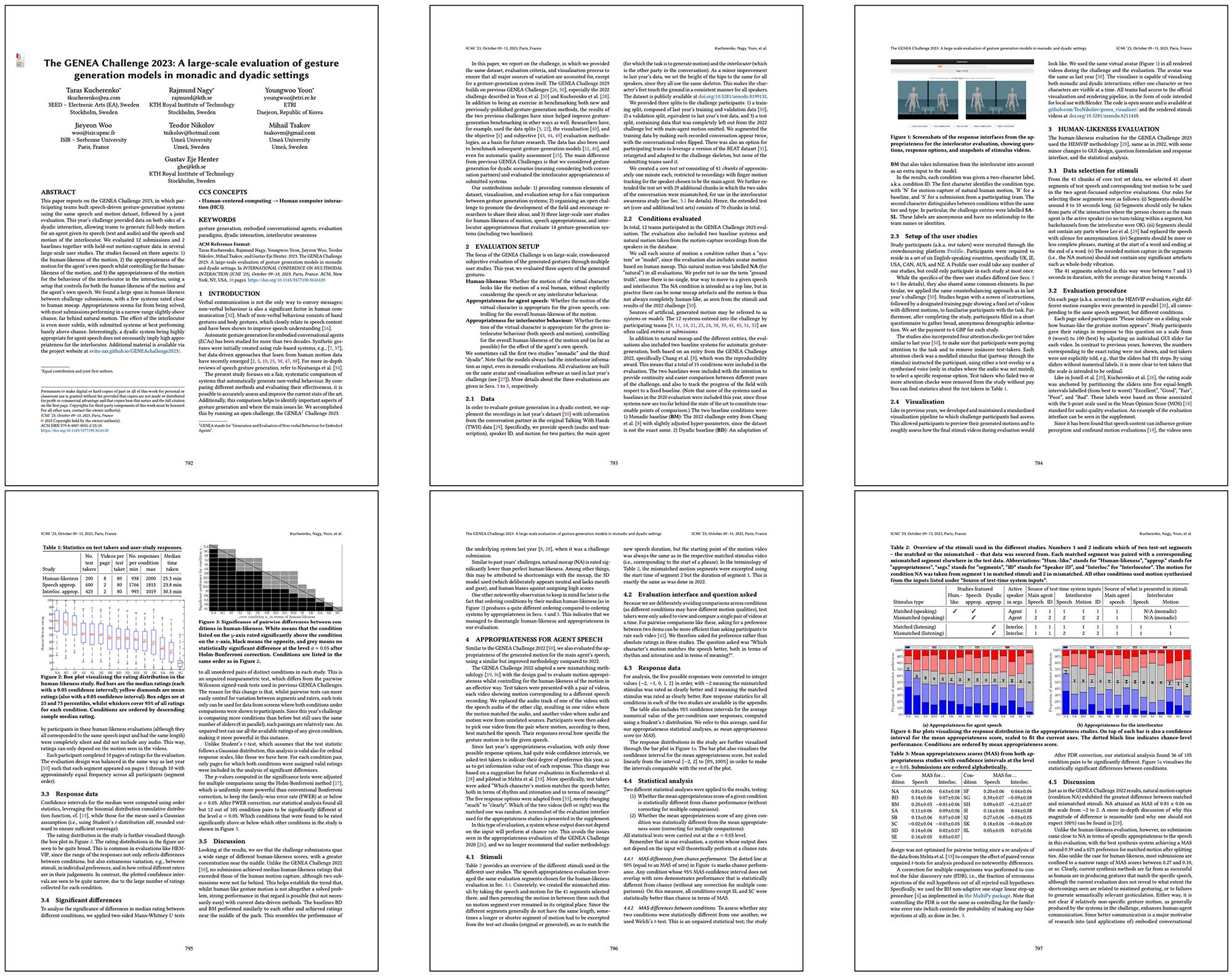GENEA Challenge 2023: Evaluating Gesture Generation Models in Monadic and Dyadic Settings

This research paper was accepted for publication by the 25th ACM International Conference on Multimodal Interaction.
Authors: Taras Kucherenko (SEED), Rajmund Nagy (KTH), Youngwoo Yoon (ETRI), Jieyeon Woo (ISIR), Teodor Nikolov (Umeå), Mihail Tsakov (Umeå), and Gustav Eje Henter (KTH).
GENEA Challenge 2023: A Large-Scale Evaluation of Gesture Generation Models in Monadic and Dyadic Settings
Download the full research paper. (2.7 MB PDF)
This paper reports on the third GENEA Challenge, which benchmarks data-driven automatic co-speech gesture generation.
In the GENEA Challenge, participating teams built speech-driven gesture-generation systems followed by a joint evaluation. This year’s challenge provided data on both sides of a dyadic interaction, allowing teams to generate full-body motion for an agent given its speech (text and audio) and the speech and motion of the interlocutor.
We evaluated 12 submissions and two baselines together with held-out motion-capture data in several large-scale user studies.
The studies focused on three aspects:
- The human-likeness of the motion.
- The appropriateness of the motion for the agent’s own speech whilst controlling for the human-likeness of the motion.
- The appropriateness of the motion for the behavior of the interlocutor in the interaction
The challenge used a setup that controls for both the human-likeness of the motion and the agent’s own speech.
We found a large span in human-likeness between challenge submissions, with a few systems rated close to human mocap. Appropriateness seems far from being solved, with most submissions performing in a narrow range slightly above chance, far behind natural motion. The effect of the interlocutor is even more subtle, with submitted systems at best performing barely above chance. Interestingly, a dyadic system being highly appropriate for agent speech does not necessarily imply high appropriateness for the interlocutor.
Additional material is available via the project website at svito-zar.github.io/GENEAchallenge2023/


